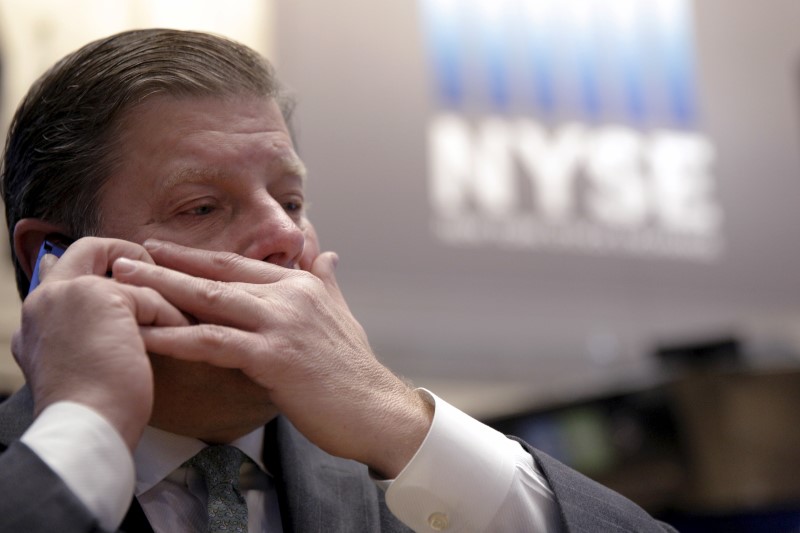This post was originally published on this site
https://i-invdn-com.investing.com/news/LYNXMPEC070NC_M.jpg
Investing.com — The S&P 500 cut losses Tuesday, as gains in tech offset falling consumer stocks after Target’s warning on profit weighed on investor sentiment.
The S&P 500 rose 0.3%, the Dow Jones Industrial Average gained 0.29%, or 94 points, and the Nasdaq added 0.4%.
Target (NYSE:TGT) cut its margin guidance for the current quarter to 2% from 5.3% previously as the retailer takes measures including ramping up promotional activity to cut excess levels of inventory, sending its shares down more than 3%.
Other retailers including Walmart (NYSE:WMT) and Best Buy (NYSE:BBY) were down about 2% each, pressuring the broader consumer discretionary sector.
The early-day dip in tech stocks, however, proved shorted-lived, as big tech moved into the green to help the broader market steady.
Apple (NASDAQ:AAPL), which was down about 2% in premarket trading, turned positive to trade 1% higher as investors continued to mull the tech giant’s new product announcements including its buy now, pay later product revealed on Monday.
Rising energy stocks were also a catalyst for the broader market rebound as oil prices climbed on bets that easing Covid-19 restrictions in China will boost demand.
APA (NASDAQ:APA), ConocoPhillips (NYSE:COP) and Exxon Mobil (NYSE:XOM) were the biggest sector gainers, with the latter lifted by an upgrade from Evercore to outperform from inline, citing attractive valuations. The firm raised its price target on the stock to $120 from $88.
A 4% climb in Novavax (NASDAQ:NVAX) pushed health care stocks higher after the drugmaker said the Food and Drug Administration panel will meet on Tuesday to consider whether to approve its Covid-19 vaccine.
In other news, Robinhood Markets (NASDAQ:HOOD) slumped nearly 7% on reports that the U.S. Securities and Exchange Commission is closing on plans to create an auction-styled system to increase competition for trading orders, marking a potential blow to trading brokerages like Robinhood that heavily rely on rebates from exchanges and payment for order flow from market makers.

